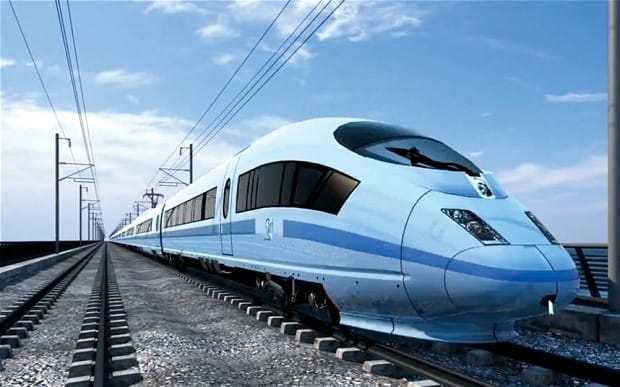Tom Kelly is Strategic Communications Adviser to HS2 and the first contributor to Pagefield’s brand new series of guest blogs, providing invaluable insights into some of the UK’s most prominent sectors.
Infrastructure is difficult stuff. It costs a lot of money. It disrupts people’s lives. Its’ benefits always seem a long way off in the future, whilst the political price is very much in your face today. Little wonder decisions get delayed.
But there is a price to pay for that indecision – and we pay that price every day in our daily battle with crowded motorways, trains and airports. Our infrastructure hasn’t kept pace with the demands of the 21st century, hence the original idea for HS2 to link up our major cities. It was launched in a burst of enthusiasm by the last Labour government and then carried on by the Coalition government in 2010, but by 2013 the enthusiasm was beginning to wane. At a time of austerity it seemed a luxury; why spend £50bn to cut a few minutes off the journey time to Birmingham?
We had to change the argument. Instead of focusing on the engineer’s dream of speed, high tech and ‘gee whiz’ trains, we started with the problems passengers face every day: over-crowded trains and slow, tortuous journeys between cities such as Leeds and Birmingham. Capacity, connectivity and, above all, reliability.
Then we tried to show how HS2 would not just address those problems, but, in doing so, would help transform and modernise our un-balanced economy. In two reports we pointed out, first, that only six of the FTSE 100 had their headquarters north of Birmingham with all that implies for an over-heating South and an under-developed North. Then, in our second report, we set out how better connectivity would allow the cities of both the Midlands and the North to develop the critical mass of skills and expertise that is essential for the modern, knowledge based economy – those which London takes for granted. We called that report: “Rebalancing Britain – from HS2 towards a national transport strategy”.
The politicians, at all levels, have responded to that strategic approach. At Westminster we have enjoyed, so far, bi-partisan support and the government has made HS2 an integral part of their approach both to the Northern Powerhouse and, now, to the Midlands.
Devolution has also helped. Initial disputes over where to locate HS2 stations have, mostly, been set to one side and councils are coming together to think through how they integrate HS2 into their existing and planned transport systems, as well as how to use it to maximise their appeal to private investment. And business is responding.
So, the lessons so far? Focus on outcomes, not on process. Speed is a means to an end, rather than an end in itself – what matters is the more joined up economy that faster, more reliable journeys make possible, as well as the extra capacity it frees up.
Second, join up the dots – between the big picture argument and what it means for the individual, between the local and national. Re-balancing Britain is a concept; having a successful career where you and your family grew up is real.
Above all, persist: the key to delivering any project, whether it’s a peace process or infrastructure, is maintaining clarity, drive and momentum. Keep the bicycle upright through the ups, and downs.




